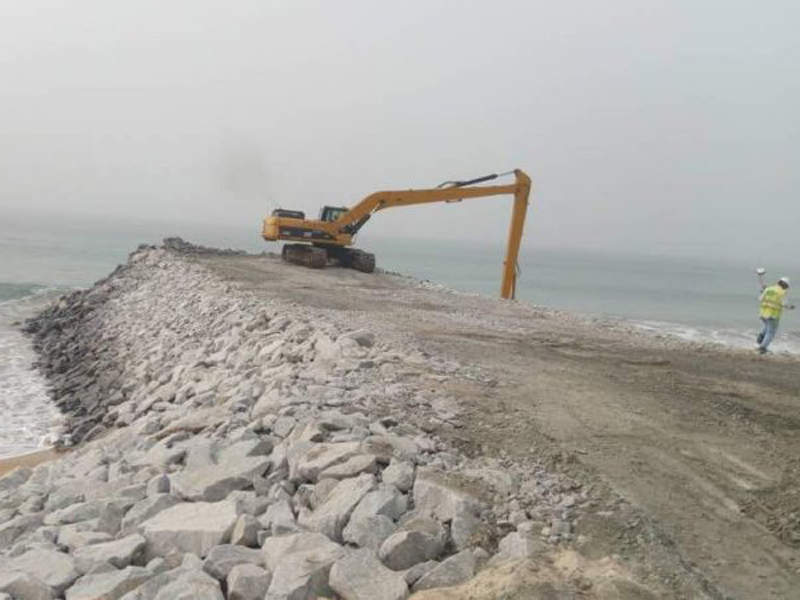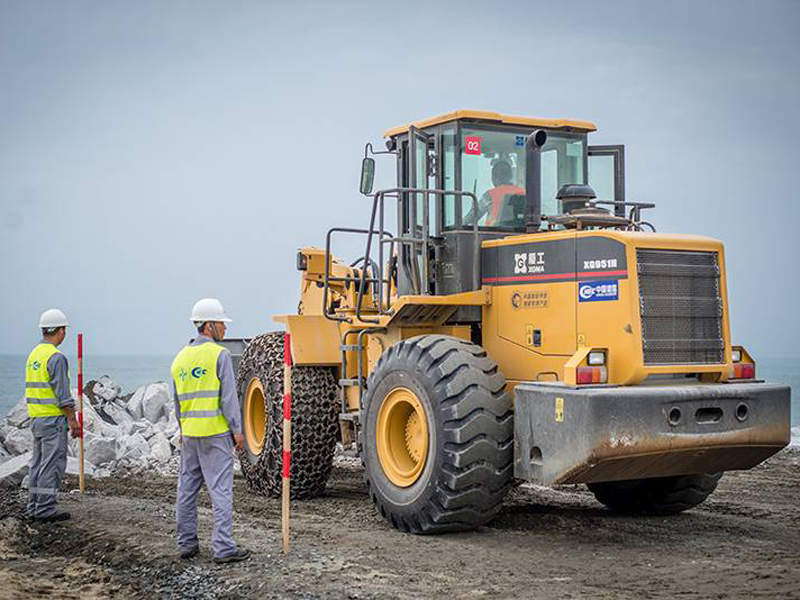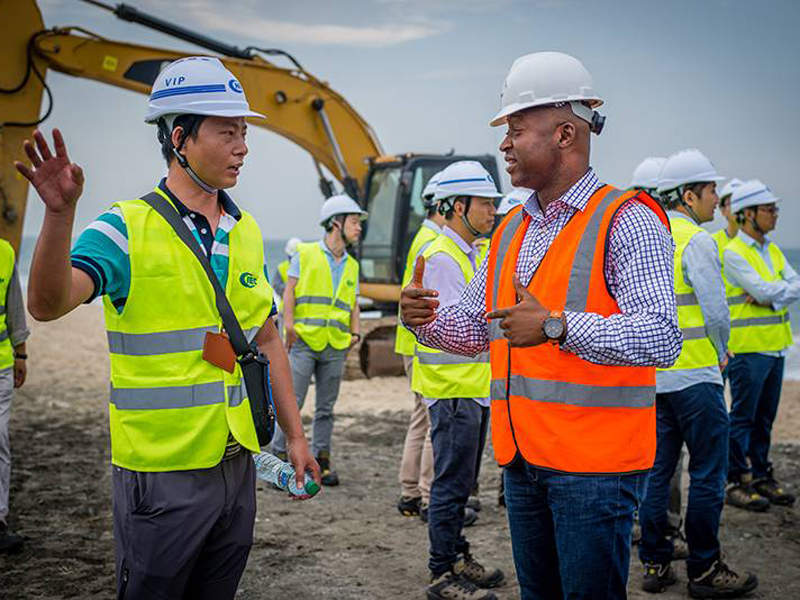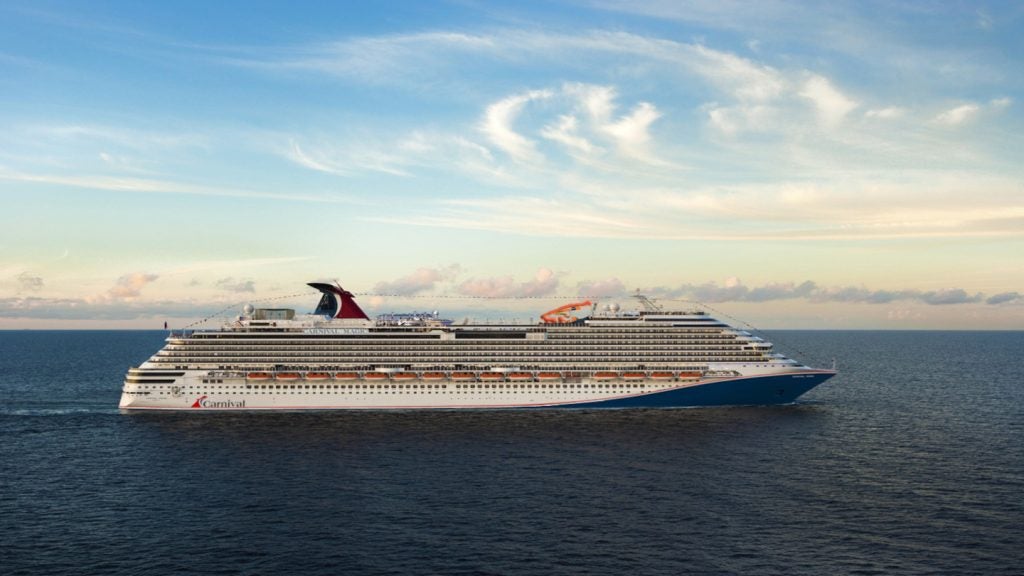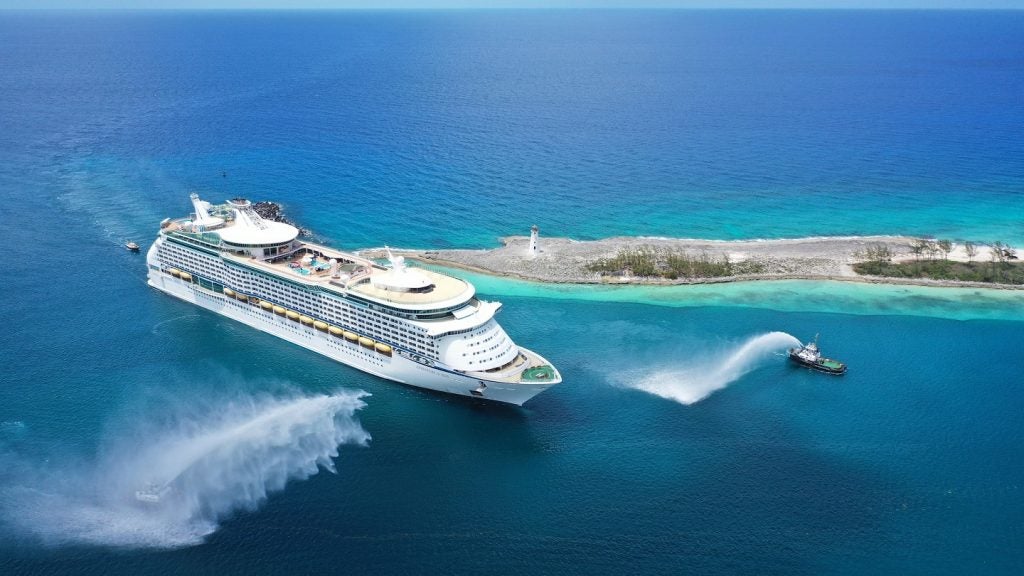Lekki deepsea port is being built over 90ha of land at the centre of the Lagos Free Trade Zone, approximately 60km east of Lagos. It is the first deepsea port to be built in Nigeria.
The multi-purpose deepsea port will serve as an important gateway for containerised, dry and liquid bulk cargo vessels.
When operational, the Lekki deepsea port will become one of the most modern ports in West Africa and support the growth of commercial operations in the region.
Construction of the $1.5bn deepsea port began in December 2017 and the project is expected to be completed in 2020.
Facilities and equipment of Lekki deepsea port
The multi-purpose Lekki port will have container, liquid and dry bulk terminals to serve container vessels of up to 8,000TEUs (20ft equivalent units), dry bulk vessels, and liquid bulk cargo vessels.
A 9km-long and 19m-deep navigation channel and a 600m-wide turning basin will be built to allow vessels to approach or leave the port. A 1,500m breakwater structure and a 300m secondary breakwater structure will be constructed for safe handling of vessels.
Other facilities at the port will include a 6km-long and 14.5m-deep approach channel, quay wall, cargo handling cranes, and three 19m-deep liquid jetties.
Details of container, liquid and dry bulk terminals
Three container berths will be featured at the container terminal, including a 1,200m-long and 16m-deep quay wall, 13 quay cranes, and a storage yard with a capacity of 15,000 ground slots. The storage space can be increased by stacking containers. The container terminal will be able to handle 2.7 million twenty-foot equivalent units (TEU) a year.
The dry bulk terminal will be situated on the west side of the container berths near the turning circle. It will have a 300m-long quay, which will be enough to accommodate one berth to handle a Panamax size vessel with a 75,000 deadweight tonnage (DWT) of cargo. Bulk cargo will be shipped to the storage areas through covered conveyor systems along a 25m corridor.
The dry bulk terminal has a four million metric tonne capacity, handling different products such as grains, raw sugar, and fertilisers.
Three berths will be located at the liquid bulk terminal, serving vessels up to 45,000DWT in the initial phase of operation. The capacity can be expanded up to 160,000DWT in the future.
Berths can handle liquid products, including petrol and diesel. Cargoes between tank farm and the vessels will be moved by pipelines along the breakwater.
Contractors involved with Lekki port
Lekki Port LFTZ Enterprise (LPLE) signed a 45-year concession agreement with the Nigerian Ports Authority (NPA) in April 2011, to develop, build, own, operate and transfer the Lekki deepsea port project under the Nigerian Ports Authority Act 2004.
LPLE is a joint venture of Tolaram Group (75%), Lagos State Government (20%), and the Nigerian Ports Authority (5%).
US-based company Louis Berger was contracted by Tolaram Group to serve as the project management consultant. The scope of the contract includes design, construction and commissioning of all marine and landside port facilities.
China Harbour Engineering LFTZ Enterprise (CHELE), a subsidiary of China Harbour Engineering Company (CHEC), is responsible for the design and construction of the marine and landside infrastructure for the container terminal and utilities.
The CMA CGM Group signed a memorandum of agreement with LPLE in April 2018 to operate the Lekki port’s container terminal.
Lekki port project benefits
Lekki deepsea port will create approximately 170,000 direct and indirect jobs. It will also generate up to $201bn revenue to state and federal agencies through taxes, duties and royalties.
The port is expected to develop direct and induced business revenue of $158bn and contribute an aggregate of $361bn to the Nigerian economy.

